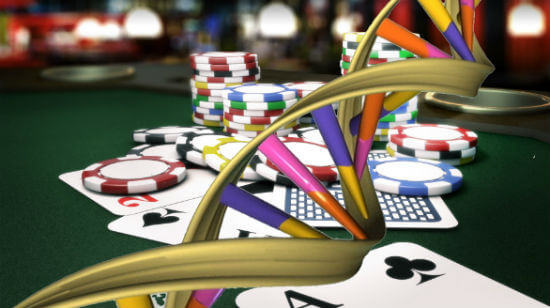What makes you gamble the way you do? Is it a carefully thought-out plan? Do you set yourself limits? Do you have a strategy?
There are as many gambling strategies as there are gamblers, and every gamer knows the cry of the newbie player who says that they “have a system to beat the House.” But what really determines how we place our bets? Turns out it’s actually a question of genetics.
You Mean It’s All Because of Science?
At least, that’s what recent research suggests. Researchers from the University of California, Berkeley, National University of Singapore, and the University of Illinois at Urbana-Champaign have found that the genes that regulate the neurotransmitter dopamine (the chemical responsible for the “reward” feeling in your brain) also influence how you place your bets.
More specifically, the genes’ influence is on “complex social behavior, in this case strategic behavior.” 2 years ago, associate professor of marketing at UC Berkeley and study leader Ming Hsu discovered that strategic activities such as gambling use two parts of the brain that deal with rational decision-making and rewards respectively.
How Did They Find That Out?
What makes this particularly interesting is that both areas are reliant on nerve cells that use dopamine, the reward chemical. During the study, 217 students at the National University of Singapore were, after genetic testing, hooked up to brain-imaging equipment, and then made to play a game called the “patent race,” a game that requires a player to bet against an unknown opponent through a computer.
It turns out that gambling, or any sort of competitive activity against another individual, is in fact made up of 2 different types of learning. One is reinforcement learning, where you learn from the consequences of your actions (e.g. putting your hand on a hot stove burnt last time, so let’s not do it again) and belief learning, which lets you model outcomes for the future, specifically (in this instance) how an opponent will act in a given situation (e.g. I burnt my hand on the hot stove, so I’ll probably burn my hand in the hot fire).
What does Burning my Hand Have to Do with Anything?
The results of the tests showed that what belief learning occurred, or how well players could predict and react to their opponents’ actions based on history, depended on 3 genes that control dopamine in the rational part of the brain. In contrast, the way in which reinforced learning was received depended on 2 genes controlling dopamine in the reward and motivation center of the brain.
Basically, a large degree of how we function in a competitive situation like gambling comes down to how our brain uses dopamine. And whether we continue to gamble like we do also depends on the chemicals flowing through our veins and bunging up our synapses.
What are the Implications?
The implications of this research are vast, as they apply not only to gambling, but also to investment, career achievements, and arguably any sort of competitive activity. However, further research needs to be done to determine to what extent these results can be applied to other areas.
What it does mean, though, is that you have an excuse for indulging in your favorite slot or casino game — your genes tell you to do so! (Of course, this doesn’t mean you shouldn’t be careful. If you feel your gambling is becoming problematic, have a look at our Responsible Gambling page, and get in touch with one of the organizations listed there).
What else will science uncover in the near future, though? Let’s wait and see!

